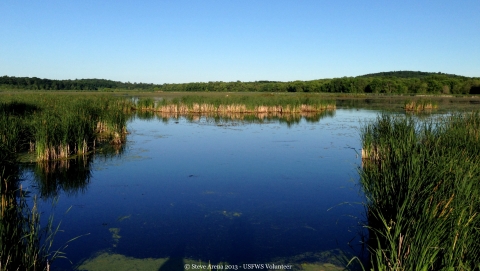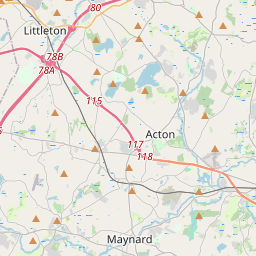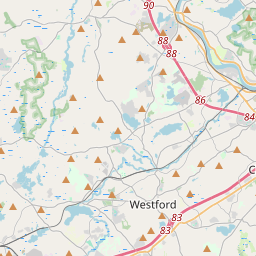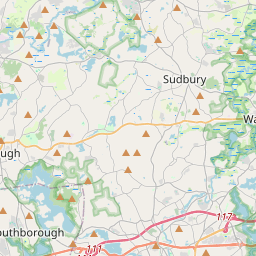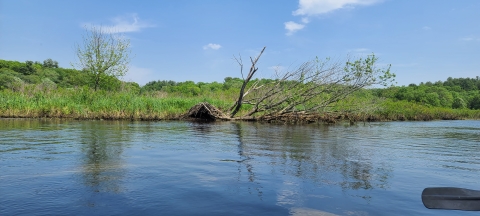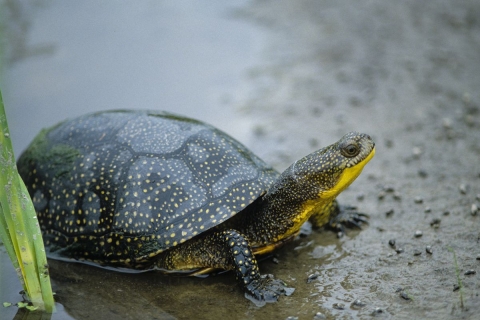
For your safety, please consider wearing blaze orange while visiting during hunting season.
Assabet River NWR, Great Meadows NWR, and Oxbow NWR are currently open to hunting by permit for white-tailed deer through December, as well as other game species through February 2025. Please check the national wildlife refuge national wildlife refuge
A national wildlife refuge is typically a contiguous area of land and water managed by the U.S. Fish and Wildlife Service for the conservation and, where appropriate, restoration of fish, wildlife and plant resources and their habitats for the benefit of present and future generations of Americans.
Learn more about national wildlife refuge websites and the State of Massachusetts website for more information.
Visit Us
National wildlife refuges offer us all a chance to unplug from the stresses of daily life and reconnect with our natural surroundings. Great Meadows National Wildlife Refuge is roughly 85% composed of valuable freshwater wetlands, alongside the Sudbury and Concord Rivers. The Sudbury unit includes tranquil trails around wetlands and through woodlands and features a non-motorized boat launch on the Sudbury River. The Eastern MA Complex headquarters is located at this unit and you can purchase America the Beautiful Passes here. The Concord unit has excellent birding, and noted ornithologists consider this unit to be one of the best inland birding areas in the state. This site has a wildlife observational tower, observational platform and direct access to the Concord River. Please note: there is an entrance fee the Concord Unit.
America The Beautiful Interagency Passes
Due to reduced staff availability, sales of "America the Beautiful" passes at our location will be suspended until further notice. We apologize for the inconvenience.
To find an alternate purchase location please visit:
Location and Contact Information
- Great Meadows National Wildlife Refuge Sudbury Unit (Complex Headquarters)View DetailsGreat Meadows National Wildlife Refuge 73 Weir Hill Road Sudbury, MA 01776
- Great Meadows National Wildlife Refuge Concord UnitView DetailsMonsen Road Concord, MA 01742
About Us
Historically, refuge lands were primarily inhabited by many groups of Indigenous peoples. In 1944, a local hunter donated over 200 acres to U.S. Fish and Wildlife Service, establishing the refuge in Concord. The Sudbury unit, where the Eastern MA Complex Headquarters is located, was established later as the Service began buying additional land in the area’s wetlands.
The goal of refuge management is to provide habitat for native fish and wildlife, especially migratory birds. The refuge’s wetlands, fields and woods provide great habitat for many species, including vast avian groups, semi-aquatic mammals like beaver, white-tailed deer, small mammals, insects, amphibians, and reptiles.
What We Do
Wildlife conservation is at the heart of the National Wildlife Refuge System. It drives everything on U.S. Fish and Wildlife Service lands and waters managed within the Refuge System, from the purposes for which a national wildlife refuge national wildlife refuge
A national wildlife refuge is typically a contiguous area of land and water managed by the U.S. Fish and Wildlife Service for the conservation and, where appropriate, restoration of fish, wildlife and plant resources and their habitats for the benefit of present and future generations of Americans.
Learn more about national wildlife refuge is established to the recreational activities offered to the resource management tools used. Using conservation best practices, the Refuge System manages Service lands and waters to help ensure the survival of native wildlife species.
Our Species
The refuge provides important habitat for all species, however, specializes in migratory birds. Great Meadows has a large, recorded bird list, with over 220 species. Several species of waterfowl including mallards, black ducks, wood ducks and blue-winged teal have been recorded here at the refuge. Great Meadows also the largest genetic distinct populations of threatened Blanding’s turtle in the northeast. The wetlands and adjacent forests and fields provide great habitat for all species, including pollinating insects like monarchs, other reptiles such as the northern water snake, raptors, turkeys, coyotes and woodchucks.
Get Involved
Employment Opportunities
Fire Management Officer
Apply through USAJOBS
The Zone Fire Management Officer is responsible for coordinating prescribed fire and wildlife operations for the 6 state New England Fire Zone. Prescribed fire is the primary workload within the zone and will require the FMO to have excellent communication skills as they will be working with the multiple refuges from Rhode Island north to Maine. This is a wonderful opportunity for individual development as we are currently building the program which will allow the FMO to hire the team and create an environment to succeed. If you feel up to the challenge and can create a vision for the New England Fire Zone that will lead our program into the future.
Projects and Research
Most research, projects, and initiatives on the refuges comprising the Eastern Massachusetts National Wildlife Refuge Complex examine management of avian resources, various public uses, rare, threatened, or endangered species and habitats, and invasive species invasive species
An invasive species is any plant or animal that has spread or been introduced into a new area where they are, or could, cause harm to the environment, economy, or human, animal, or plant health. Their unwelcome presence can destroy ecosystems and cost millions of dollars.
Learn more about invasive species control.

